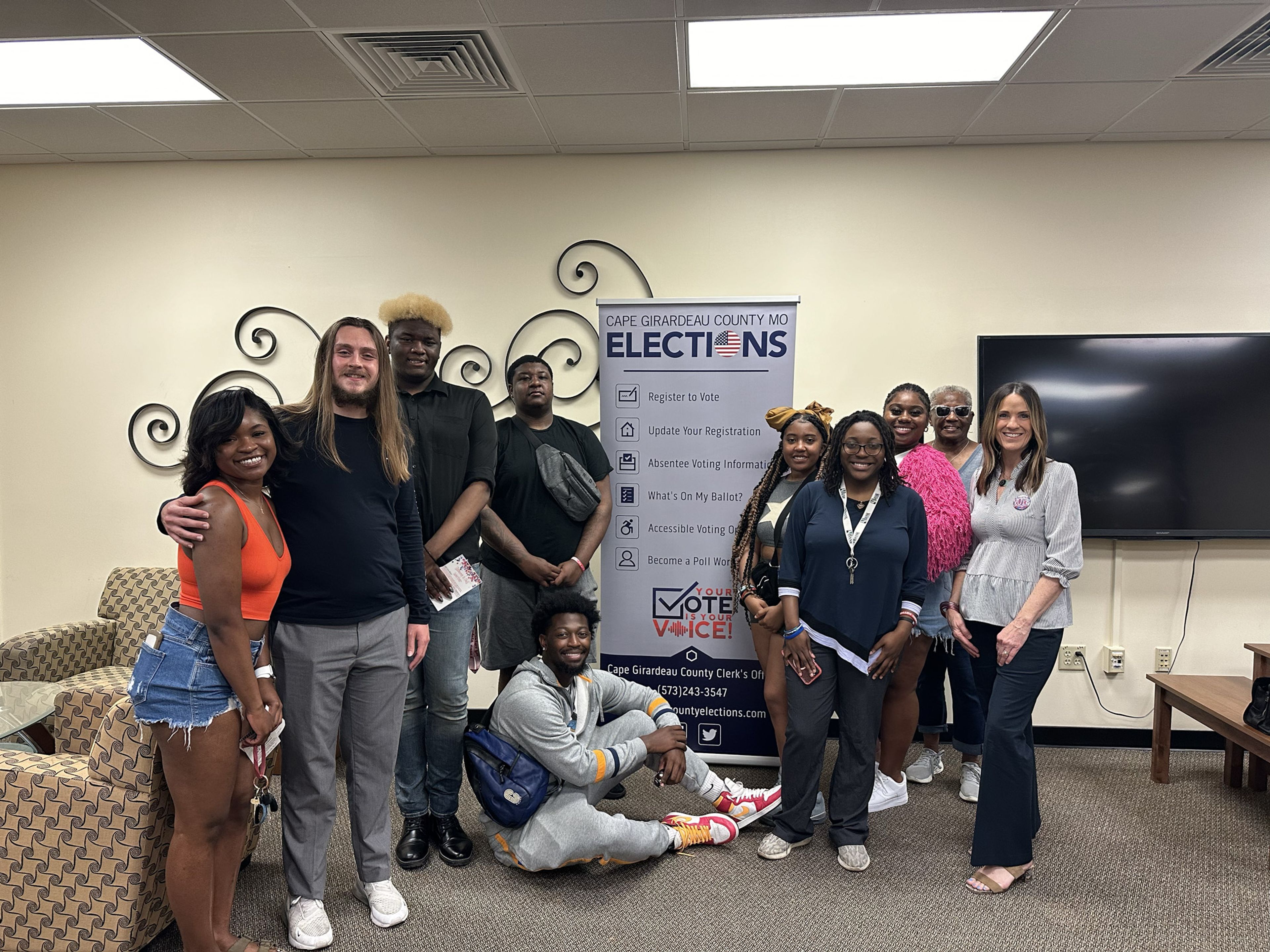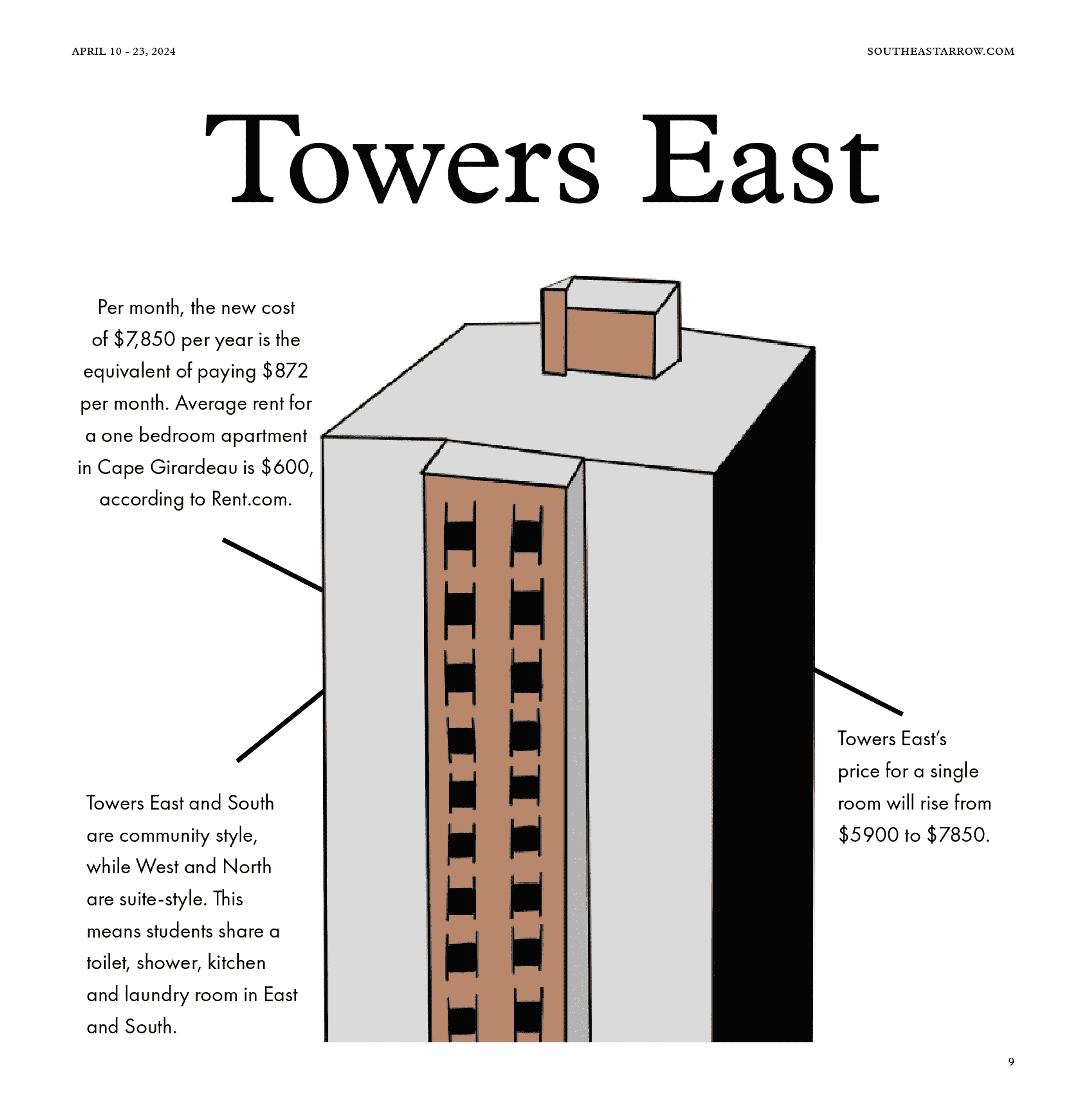Collin Ritter said he grew up inspired by Walt Disney's power of storytelling.
But as a college student, he was driven to find what avenue best fit that passion. Ritter started out in theater, under the warm glow of lights on a stage, but eventually transitioned to corporate communication and marketing.
He wanted to learn about the roots of others' passions, too. So he came up with a plan to host a TEDx event at Southeast Missouri State University.
"That's what has always attracted me to TED, because it provides these great stories and great ideas that people may not be familiar with and introduces these new ideas to a new community," Ritter said.
Ritter brought his idea last spring to communication studies professor Brooke Hildebrand Clubbs, who helped him through the application and organization processes. To get the official go-ahead, alone, took nearly four months, according to Ritter.
Clubbs said there's a distinction between TEDx and the more commonly recognized TED Talks. TED Talks heard on NPR or watched online are typically done at annual TED-hosted conferences. A TEDx event, on the other hand, merely creates the affiliation with TED. A university or group is responsible for the output of it.
However, TED still has stipulated guidelines. Clubbs said event speakers must be from the area and it must be voluntary. As of right now, Dr. Debra Lee-DiStefano from the Department of Global Cultures and Languages, Dr. Tamara Zellars Buck from the Department of Mass Media, Dr. Allen Gathman, who's a professor in the Department of Biology as well as the associate dean of online learning, and MBA Director Dr. Kenneth Heischmidt from the Department of Management and Marketing are set as the evening's four speakers.
Clubbs noted three TED Talks videos will be shown between to account for TED's multimedia standard. She said there's also a 100-person limit to attendance.
"They want it to be small, so that there can be discussion groups, so that there can be enough of a way for people to break into small groups to talk about what they're hearing," Clubbs said.
The lecture theme, itself, should be broad to allow for various interpretations. Ritter thought of "Diverse Passions."
People often come into college not exactly sure what they're passionate about or what they can see themselves doing for the next 40 or 50 years. Clubbs said the TEDx event is a chance to broaden the way students view higher education.
"So they don't just think about, 'What job am I going to have?' but more, 'What do I want to do? What do I want to change? Who [do] I want to help?'" Clubbs said.
"Maybe this conference can inspire students to find their passion and find their career path," Ritter said. "And maybe this conference can lead them on their path to success in the future."
The diversity aspect stemmed from the speakers' range of disciplines. Clubbs said a university is sometimes the first place people encounter those with different cultural backgrounds and beliefs. She teaches an intercultural communication course and tells her students on the first day that when cultural sensitivity is discussed, much of society wants to brush it off as political correctness.
"I personally think you can substitute that phrase, 'politically correct,' with the phrase 'treating people with respect,'" Clubbs said. "Think about how it sounds to say, 'I'm so tired of treating people with respect. Why do we have to treat everybody with respect?'"
Her hope is that students leave with a positive perspective about those who have dissimilar values and they don't look at words like social justice, diversity, political correctness or tolerance as negative.
"I hear people use those as if they're derogatory terms, and that's very troubling to me," Clubbs said. "I would hope that anyone who is well educated would look at those terms as something that we should strive for."
News headlines concerning issues on diversity had their own influence. Ritter and Clubbs didn't want to follow suit in silence.
"If you don't start talking about it that's when you've got folks ending up being on hunger strikes," Clubbs said.
Clubbs said the TEDx event is tentatively scheduled for March 3 in the Aleen Vogel Wehking Alumni Center's Kem Statuary Hall. They're currently adding finishing touches to the venue atmosphere. It's not a lecture or a social gathering, but rather a little of both. To Clubbs, it's a "listening party."
As opposed to a first-come, first-served policy, 100 tickets will be awarded at random to those who win a lottery. Fifty students will be chosen for free entry, while the remaining tickets are reserved for faculty, staff and community members. Prices will be based on overall planning expenses for the 50 non-student tickets and have yet to be determined.
Those who are selected to attend must pay within a week or forfeit their seat to someone on the waiting list.
The event will be filmed and placed on the TED website. More important than national spotlight, though, it allows people to hear from others they wouldn't normally strike up a conversation with.
"To really stretch ourselves to have difficult conversations, to hear different perspectives, to hear about diverse passions, I think is something that a university should aspire to do," Clubbs said.
She added it's easy to stay where things are comfortable, but progress was never made from stagnance.
"People are different, different people like different things, and that's OK," Ritter said. "That's what I want people to take away from it."




